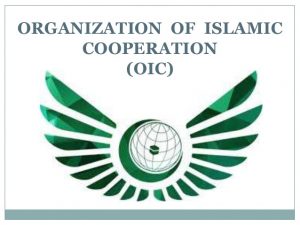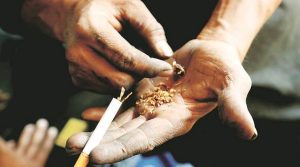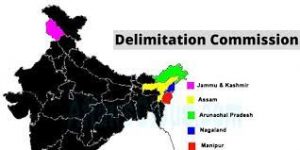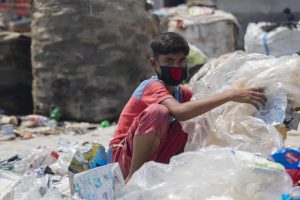Today Current Affairs: 22nd December 2021 for UPSC IAS exams, State PSC exams, SSC CGL, State SSC, RRB, Railways, Banking Exam & IBPS, etc
Table of Contents
SEBI Bans Derivative Trade In Agriculture Commodities:

The Securities and Exchange Board of India (SEBI) has banned the derivative trade of seven agricultural commodities on the future’s platform of National Commodities and Derivatives Exchange (NCDEX) for a year.
- The regulator has banned derivative contracts trade in chana, wheat, paddy (non-basmati), soyabean and its derivatives, mustard seed and its derivatives, crude palm oil and moong for a year with immediate effect.
- The commodity derivatives market has been prone to such sudden suspensions of trading in agriculture items ever since it was introduced under the erstwhile Forward Markets Commission (FMC).
SEBI:
- It is a statutory body established on 12th April, 1992 in accordance with the provisions of the Securities and Exchange Board of India Act, 1992.
- The basic functions of the SEBI is to protect the interests of investors in securities and to promote and regulate the securities market.
Reasons for Ban:
To cool off Food Inflation:
- India’s retail inflation rose to a three-month high of 4.91 % in November from 4.48 % in the previous month primarily because of a rise in food inflation to 1.87 % from 0.85 % over this period.
Double Digits WPI:
- Wholesale Price Index-based inflation has remained in double digits for eight consecutive months beginning in April, mainly because of surging prices of food items.
- In November, the wholesale price-based inflation surged to a record high of 14.23 % amid hardening of prices of mineral oils, basic metals, crude petroleum and natural gas.
To insulate future Price Shock:
- In view of Rabi Output that might be affected morbidly because of fertiliser shortage faced in many parts of the country.
- By banning future’s trade, the government is trying to insulate any price shock the market might feel in the days to come in case the production is not up to par.
Organisation Of Islamic Cooperation (OIC):

A meeting of foreign ministers from the Organisation of Islamic Cooperation (OIC) agreed to establish a humanitarian trust fund to address the growing economic crisis in Afghanistan which has left millions facing hunger over the winter.
- The meeting is the biggest major conference on Afghanistan since the fall of the US-backed government.
- In July 2021, India rejected the OICs proposal to assist a dialogue between India and Pakistan.
Humanitarian Trust Fund:
- The fund will be set up under the Islamic Development Bank to channel aid to Afghanistan in coordination with other groups.
- Allowing Afghanistan access to its financial resources would be pivotal to preventing economic collapse and said realistic pathways to unfreezing billions of dollars in frozen central bank reserves should be explored.
- The meeting also called on the international community to provide urgent and sustained humanitarian aid to Afghanistan as well as to the main countries housing Afghan refugees.
- The United Nations (UN) has also set up a special trust fund to provide urgently-needed cash directly to Afghans through a system that taps into donor funds frozen since the Taliban takeover in August
- It was set up with the aim of injecting liquidity into Afghan households in a bid to permit them to survive the upcoming winter and remain in their homeland.
- Germany is a first contributor to the fund. It had pledged 50 million euros (USD58 million) for it.
Organisation of Islamic Cooperation
- The OIC is the second largest intergovernmental organisation after the United Nations with a membership of 57 states.
- It is the collective voice of the Muslim world. It endeavors to safeguard and protect the interests of the Muslim world in the spirit of promoting international peace and harmony among various people of the world.
- It was established upon a decision of the historical summit which took place in Rabat, Kingdom of Morocco on the 25th of September 1969.
- Headquarters: Jeddah, Saudi Arabia.
The Narcotic Drugs And Psychotropic Substances (Amendment) Bill, 2021:

The Narcotic Drugs and Psychotropic Substances (Amendment) Bill, 2021 was recently passed in Parliament.
- It seeks to replace an ordinance promulgated on September 30 this year.
- Objective of the Bill:
- The bill was introduced by the government to rectify an error that made provisions in Section 27 of the Act — providing for punishment of those financing illicit trafficking — inoperable.
- This happened in 2014, when the Act was amended in 2014 to ease access of narcotic drugs for medical necessities, but the penal provision was not amended accordingly.
- In June 2021, the Tripura High Court found the oversight in the law and directed the Union Home Ministry to amend the provisions of Section 27.
- The drafting error was highlighted when an accused moved a special court in Tripura contending that he could not be charged for the offence as Section 27 A is referred to a blank list. The Tripura High Court subsequently asked the Centre to amend the law.
- The anomaly crept in when the Narcotic Drugs and Psychotropic Substances (NDPS) Act was amended in 2014 to allow better medical access to narcotic drugs, removing state barriers in transporting and licensing of “essential narcotic drugs”.
- Prior to the 2014 amendment, clause (viiia) of Section 2 of the Act, contained sub-clauses (i) to (v), wherein the term ‘illicit traffic’ had been defined.
- This clause was re-lettered as clause (viiib) by the Narcotic Drugs and Psychotropic Substances (Amendment) Act, 2014, as a new clause (viiia) in section 2 defining ‘essential narcotic drugs’ was inserted. However, inadvertently consequential change was not carried out in section 27A of the NDPS Act.
Biological Diversity (Amendment) Bill, 2021:

Government has recently introduced the Biological Diversity (Amendment) Bill, 2021 in Lok Sabha.
Highlights of the Bill:
- The Bill seeks to reduce the pressure on wild medicinal plants by encouraging the cultivation of medicinal plants.
- The Bill proposes to exempt AYUSH practitioners from intimating biodiversity boards for accessing biological resources or knowledge.
- The Bill also facilitates fast-tracking of research, simplify the patent application process, decriminalises certain offences.
- The Bill brings more foreign investments in biological resources, research, patent and commercial utilisation, without compromising the national interest.
- The bill focuses on regulating who can access biological resources and knowledge and how access will be monitored.
- The Bill has also clarified and strengthened the role of state biodiversity boards.
- People from AYUSH medicine urged the government to simplify, streamline and reduce the compliance burden to provide for a conducive environment for collaborative research and investments.
- They also sought to simplify the patent application process, widen the scope of access and benefit-sharing with local communities.
- The main focus of the bill is to facilitate trade in biodiversity as opposed to conservation, protection of biodiversity and knowledge of the local communities.
- The bill has been introduced without seeking public comments as required under the pre-legislative consultative policy.
- There are ambiguous provisions in the proposed amendment to protect, conserve or increase the stake of local communities in the sustainable use and conservation of biodiversity.
- Activists say that the amendments were done to “solely benefit” the AYUSH Ministry.
- The bill has excluded the term Bio-utilization which is an important element in the Act. Leaving out bio utilization would leave out an array of activities like characterization, incentivisation and bioassay which are undertaken with commercial motive.
- The bill also exempts cultivated medicinal plants from the purview of the Act but it is practically impossible to detect which plants are cultivated and which are from the wild.
Open Acreage Licensing Policy:

India has offered eight blocks of oil and gas in the seventh bid round of Open Acreage Licensing Policy (OALP).
- The objective is to bring more area under exploration, leading to increase in domestic production and reduction of imports.
- OALP Launched under the Hydrocarbon Exploration and Licensing Policy (HELP) in 2017.
- Under OALP, companies are allowed to carve out areas they want to explore oil and gas in.
- Companies can put in an expression of interest (EOI) for any area throughout the year but such interests are accumulated thrice in a year.
- The areas sought are then offered for bidding.
- It provides uniform licences for exploration and production of all forms of hydrocarbons, enabling contractors to explore conventional as well as unconventional oil and gas resources.
- Fields are offered under a revenue-sharing model and throw up marketing and pricing freedom for crude oil and natural gas produced.
Jammu And Kashmir Delimitation Commission:

The Jammu and Kashmir Delimitation Commission has proposed to increase six seats for the Jammu division and one for the Kashmir division, besides reserving 16 seats for the Scheduled Castes (SC) and the Scheduled Tribes in the Union Territory.
- The Kashmir division currently has 46 seats and Jammu 37.
- The commission is headed by Justice Ranjana Prakash Desai (retd.).
- The commission has not specified the districts where the SC and ST seats would be reserved.
- It said that the 2011 census was the basis for carving out the new seats. According to the census, the population of the Kashmir division was 68.8 lakh and Jammu 53.5 lakh.
- The draft proposal added that nine seats would be reserved for the Scheduled Tribes and seven for the Scheduled Castes. Jammu and Kashmir will now have a 90-member Legislative Assembly, up from the 87 prior to the Centre’s decision to end the special constitutional position of the erstwhile State.
- This has triggered sharp reactions from the regional parties.
- There is already a Supreme Court ruling granting a status quo regarding delimitation, if the commission prepares the draft based on 2011 census. It will be unconstitutional.
Fugitive Economic Offenders:

Union Finance Minister Nirmala Sitharaman informed the Lok Sabha that banks have recovered ₹13,109.17 crore by selling the assets of fugitives like Vijay Mallya, Nirav Modi and Mehul Choksi.
- Talking about the recovery of ₹13,109.17 crore from the sale of assets of wilful defaulters, who have now fled the country, the Finance Minister said ₹792 crore were earned from the sale of assets belonging to Mr. Mallya and others on July 16, 2021.
- The Minister’s comments came during her reply to a discussion on the second batch of Supplementary Demands for Grants which was passed by the Lok Sabha by a voice vote.
- The discussion on the Supplementary Demands for Grants, authorising the government to spend an additional ₹3.73 lakh crore during the current fiscal, concluded last week.
- Fugitive Economic Offenders Act (FEOA) became a law on July 31, 2018.
- Objectives:
- To deter economic offenders from avoiding the process of Indian law by remaining outside the jurisdiction of Indian courts.
- To ensure that fugitive economic offenders return to India to face the action in accordance with law.
- FEO is defined as an individual
- who has committed offences involving an amount of 100 crore rupees or more and
- has ran away from India to avoid criminal prosecution.
- Special Court: A special court will be established under the Prevention of Money-laundering Act, 2002 to declare a person as a Fugitive Economic Offender.
- Attachment of property: Special courts can direct the Central government to seize assets of fugitive economic offender including those that are proceeds of the crime.
- Appeal: Appeals against the orders of the special court will lie before the High Cour
Rain Water Harvesting:

Minister of State for Jal Shakti informed Rajya Sabha about the Rain Water Harvesting
- Though Water is a State subject, Central Government has taken a number of important measures for implementation of rain water harvesting through scientific manner including watershed principles in the country.
- Ministry of Housing & Urban Affairs (MoHUA) has formulated guidelines for the States to adopt measures suitable to local conditions, such as Unified Building Bye Laws (UBBL) of Delhi, 2016, Model Building Bye Laws (MBBL), 2016 and Urban and Regional Development Plan Formulation and Implementation (URDPFI) Guidelines, 2014.
- Under them, adequate focus has been given on requirement of rainwater harvesting and water conservation measures.
- In addition, a number of States have done notable work in the field of water conservation/harvesting such as
- ‘Mukhyamantri Jal Swavlamban Abhiyan’ in Rajasthan,
- ‘Jalyukt Shibar’ in Maharashtra, ‘Sujalam Sufalam Abhiyan’ in Gujarat,
- ‘Mission Kakatiya’ in Telangana,
- NeeruChettu’ in Andhra Pradesh,
- Jal Jeevan Hariyali in Bihar,
- Jal Hi Jeevan’ in Haryana, and
- Kudimaramath scheme in Tamil Nadu.
4 Labour Codes:

India is likely to implement four labour codes (on wages, social security, occupational safety and industrial relations) by the next fiscal year beginning 2022.
- Under these new codes, a number of aspects related to employment and work culture, in general, might change – including the take-home salary of employees, working hours, and the number of weekdays.
- Trade unions, however, have planned to intensify their agitation this week against the codes in the wake of the government’s decision to repeal the three farm laws.
Demands by trade unions:
- The two codes we accepted — on wages and social security — be implemented immediately and the two to which we had objections — industrial relations and occupational safety — be reviewed.
About the labour codes:
- The new set of regulations consolidates 44 labour laws under 4 categories of Codes namely, Wage Code; Social Security Code; Occupational Safety, Health & Working Conditions Code; and the Industrial Relations Code.
- The Parliament has already passed all the four Codes and it has also received the President’s assent.
The 4 codes are:
- The Code on Wages, 2019, applying to all the employees in organized as well as unorganized sector, aims to regulate wage and bonus payments in all employments and aims at providing equal remuneration to employees performing work of a similar nature in every industry, trade, business, or manufacture.
- The Code on Occupational Safety, Health and Working Conditions, 2020 seeks to regulate the health and safety conditions of workers in establishments with 10 or more workers, and in all mines and docks.
- The Code on Social Security, 2020 consolidates nine laws related to social security and maternity benefits.
- The Code on Industrial Relations, 2020 seeks to consolidate three labour laws namely, The Industrial Disputes Act, 1947: The Trade Unions Act, 1926 and The Industrial Employment (Standing Orders) Act, 1946. The Code aims to improve the business environment in the country largely by reducing the labour compliance burden of industries.
Issues with these codes:
- The work hours provisions for regular workers do not provide flexibility to fix work hours beyond eight hours a day.
- The codes have also missed laying down uniform provisions for part-time employees.
- There are also provisions that impact employee wages.
- The labour codes also chalk out fines on businesses for non-compliance of provisions, second offences and officer-in-default.
- In the current pandemic situation, a majority of small businesses are in no position to adopt and implement the labour code changes.




